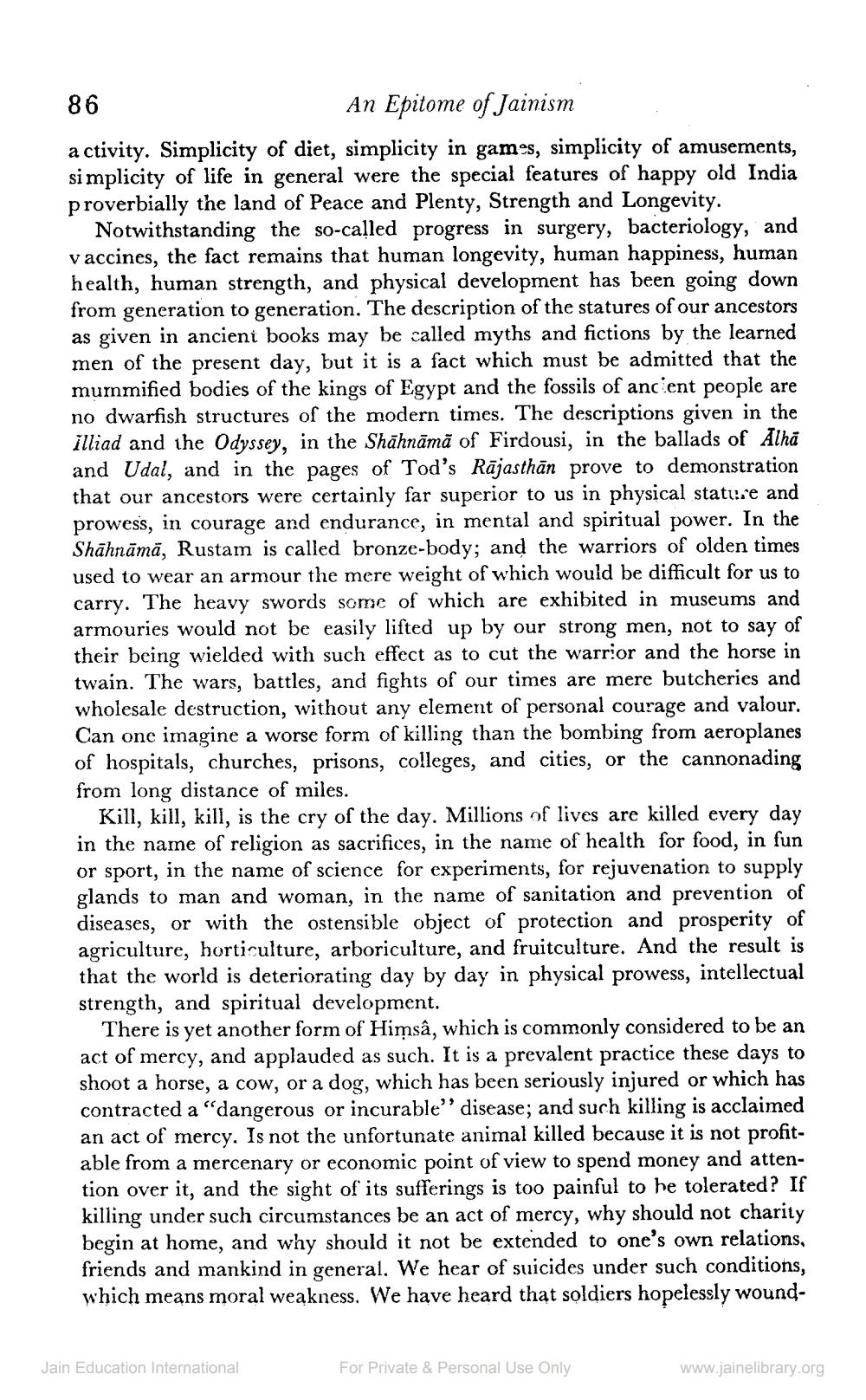________________
86
An Epitome of Jainism
a ctivity. Simplicity of diet, simplicity in games, simplicity of amusements, simplicity of life in general were the special features of happy old India proverbially the land of Peace and Plenty, Strength and Longevity.
Notwithstanding the so-called progress in surgery, bacteriology, and vaccines, the fact remains that human longevity, human happiness, human health, human strength, and physical development has been going down from generation to generation. The description of the statures of our ancestors as given in ancient books may be called myths and fictions by the learned men of the present day, but it is a fact which must be admitted that the mummified bodies of the kings of Egypt and the fossils of ancient people are no dwarfish structures of the modern times. The descriptions given in the illiad and the Odyssey, in the Shāhnāmā of Firdousi, in the ballads of Alha and Udal, and in the pages of Tod's Rājasthān prove to demonstration that our ancestors were certainly far superior to us in physical statu..e and prowess, in courage and endurance, in mental and spiritual power. In the Shāhnāmā, Rustam is called bronze-body; and the warriors of olden times used to wear an armour the mere weight of which would be difficult for us to carry. The heavy swords some of which are exhibited in museums and armouries would not be easily lifted up by our strong men, not to say of their being wielded with such effect as to cut the warrior and the horse in twain. The wars, battles, and fights of our times are mere butcheries and wholesale destruction, without any element of personal courage and valour. Can one imagine a worse form of killing than the bombing from aeroplanes of hospitals, churches, prisons, colleges, and cities, or the cannonading from long distance of miles.
Kill, kill, kill, is the cry of the day. Millions of lives are killed every day in the name of religion as sacrifices, in the name of health for food, in fun or sport, in the name of science for experiments, for rejuvenation to supply glands to man and woman, in the name of sanitation and prevention of diseases, or with the ostensible object of protection and prosperity of agriculture, horticulture, arboriculture, and fruitculture. And the result is that the world is deteriorating day by day in physical prowess, intellectual strength, and spiritual development.
There is yet another form of Himsâ, which is commonly considered to be an act of mercy, and applauded as such. It is a prevalent practice these days to shoot a horse, a cow, or a dog, which has been seriously injured or which has contracted a "dangerous or incurable" disease; and such killing is acclaimed an act of mercy. Is not the unfortunate animal killed because it is not profitable from a mercenary or economic point of view to spend money and attention over it, and the sight of its sufferings is too painful to he tolerated? If killing under such circumstances be an act of mercy, why should not charity begin at home, and why should it not be extended to one's own relations, friends and mankind in general. We hear of suicides under such conditions, which means moral weakness. We have heard that soldiers hopelessly wound
Jain Education International
For Private & Personal Use Only
www.jainelibrary.org




